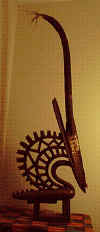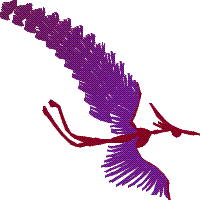|
|
Hope is always hope
for all of us 2nd Sunday of Advent |
Mark's description of John the Baptist's wardrobe and diet: at this time they were the classic signs of a prophet. The
appearance of John the Baptist was an enormous thing for the Jews because the
last prophet had died 500 years ago. So they
figured that the "heavens were closed". John was doing the regular
prophet thing...namely, telling people to shape up. Last Sunday I
suggested that seeing hope as sin-shaped was one useful way of looking at it.
By that I meant to emphasize that hope is opposed to simple optimism or
self-reliance. Neither of these is hope, religious hope. Rather, we need to look
at where we have failed in our humanity. This is sin: where we have acted
freely and conscientiously against what we know to be true for me as a human
being. We all do this in one way or another. Our dishonesty. Our
fear driven violence. They can be acts of our own choosing. And so my sin is my own. Of course, looked at that way, that
fits beautifully with our wonderful Western idea of the rugged individualist.
Nobody can sin for me, by God. I'm doing my own sinning, just like I'm doing
everything else.
Now there is some truth in that,
for nobody can be free for me. But clearly there is something more going on
because if I look at myself and the cheating that I do, it is often enough a
compulsion, or obsession, something that I'm driven to. And the whole question
of freedom becomes truly difficult at times. But if we look at all this through
Pauline eyes, all kinds of things come into focus. Indeed
Paul talks about sin as certainly a violation of one's own freedom. A
mutilation of one's own humanity. A standard Jewish view of sin. But then he
also talks, in a funny way, about sin as a power. There's me the sinner.
But then there's this other enormous, large reality, which he refers to as sin,
which is a power external to me, like air pollution. Well, it's clearly
mythological mode of expression but what Paul is talking about is something
very deep in Jewish consciousness. And the prophets keep bringing this up:
namely, that there is a kind of collective residue of sinning which in itself
shapes the atmosphere in which we carry on our lives. This illumines a whole
other dimension of sin which we in the west are very prone to forget. Sin is
never simply a private matter. Sin always has not only social
consequences, but a social origin as well. Always. Sin is always a
violation of human relationships in one way or another. Sin is me making
myself inaccessible to other human beings. But my sin comes out of otherís
prior violations, and inaccessibility That's where this Pauline notion of sin
as power comes into very sharp focus and becomes very helpful. I don't
know how free we are because we are born into an environment in which we are
afraid for ourselves. The idea of standing naked and ashamed before other
people is not only unimaginable, for me, most of the time, but also un-do-able.
So what I particularly want to emphasize is that fear
certainly diminishes my own freedom and accounts for the obsessive and
compulsive form of a lot of what I do. It's really evil in its consequences. Or
whether it is sin, technically, I don't know. I don't think so because
there's not much freedom, often enough, involved in this because of its tainted
point of origin.
So what this does,
I think, is illumine the face of hope. If hope is sin shaped and a sin
always entails other people, one way or another, then hope if it is to be
authentic has to be for other people. We cannot just hope for ourselves.
Hope is always hope for all of us, must be hope for all of us. All
those others with whom I am to be connected are radically involved in my own
reality. As Paul says, we are members of each other and so that sharpens
the social reality of hope. We really do have to hope for everybody.
Why? Because I am entailed with everybody. And just because there is no
such thing as private sin, there is no such thing as private hope that can call
itself Christian. It absolutely must embrace everybody. All of us.
And this of course gives us a kind of grandeur, but also a difficulty.
Because I don't know what that means. That is, I know that the words are
right. But how do I hope for everybody? How does everybody even enter
into my consciousness so that I can begin to hope for everybody? I don't know.
But I know that's what it must be. Even the illumination of hope as the hope
for all us is, I think, helpful.
Created: 30 Nov 1996
© Copyright: R. Trojcak, 1996, 1997, 1998, 1999, 2000, 2002
London Ontario Canada
Last Update: September 05, 2005
Comments: rtrojcak@hotmail.com

